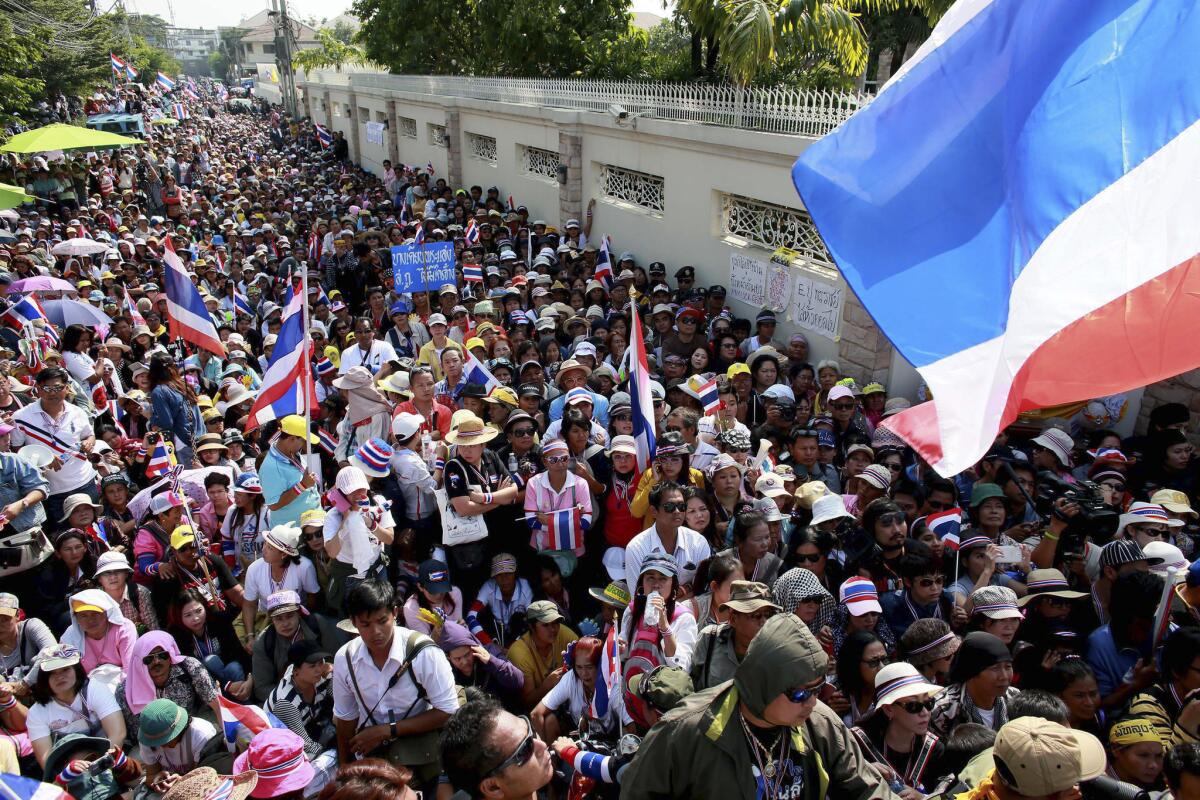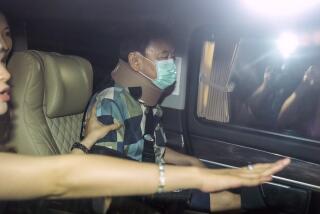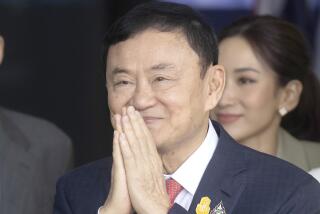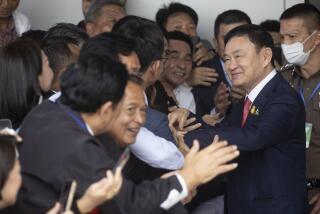Threat of military coup hangs over Thailand unrest

A day after street protests turned deadly in Thailand, the head of the army declined on Friday to rule out a military coup d’etat to quell escalating violence as pro- and anti-government forces head toward a contentious Feb. 2 election.
Opponents of Prime Minister Yingluck Shinawatra and her brother and deposed predecessor, Thaksin, have been taking to the streets by the tens of thousands for two months to protest the pending vote, in which the Shinawatra clan likely to retain power.
The demonstrations had been mostly peaceful until Thursday, when a hard-core faction of protesters showed up with knives and slingshots at a voter registration event at a Bangkok sports complex, Voice of America reported. Two people were killed, including a police officer, and more than 150 were injured by the mob demanding the election be postponed until after enactment of reforms aimed at breaking the power of the billionaire Shinawantra family.
Opposition leaders accuse Yingluck of being a puppet of her exiled brother, who was ousted in a military coup in 2006. The anti-government factions, comprising the urban business elite and educated middle class, see the Shinawatras’ power as the fruit of populist health and welfare programs showered on supporters in the poor, rural north.
The Shinawatras and their political allies have won every major election in Thailand since 2001. The opposition this time is demanding that Yingluck step down and let a “people’s council” govern until what they see as a more fair electoral playing field can be achieved in a year or so.
After Thursday’s violence, Deputy Prime Minister Surapong Tovichakchaikul said he would ask the army to provide security for the elections.
Army chief Gen. Prayuth Chan-ocha said he didn’t want his forces dragged into the political conflict. But in a country where the military has staged or attempted coups 18 times in 80 years, the general’s words were equivocal and seemed to lack conviction.
“The military does not shut or open the door to a coup, but a decision depends on the situation,” Prayuth told journalists at army headquarters, the Bangkok Post reported.
Yingluck’s ruling Pheu Thai party is eager to hold the election as scheduled, in a little more than a month, and the prime minister on Thursday rejected a request by the Election Commission to delay the vote until there is “mutual consent” among the leading parties.
The main opposition Democrat Party has announced that it will boycott the Feb. 2 election, and other anti-government groups have vowed to disrupt the vote with acts of civil disobedience.
Opposition groups have also been angered by Yingluck’s attempt to push through parliament an amnesty bill that would allow her brother, now living in self-imposed exile in Dubai, to return to Thailand and resume his political career.
Twitter: @cjwilliamslat
More to Read
Start your day right
Sign up for Essential California for news, features and recommendations from the L.A. Times and beyond in your inbox six days a week.
You may occasionally receive promotional content from the Los Angeles Times.







